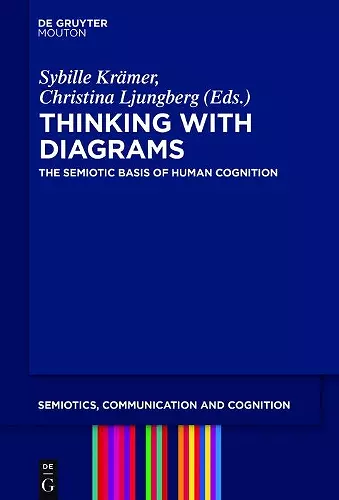Thinking with Diagrams
The Semiotic Basis of Human Cognition
Sybille Krämer editor Christina Ljungberg editor
Format:Hardback
Publisher:De Gruyter
Published:11th Jul '16
Currently unavailable, and unfortunately no date known when it will be back

Diagrammatic reasoning is crucial for human cognition. It is hard to think of any forms of science or knowledge without the "intermediary world" of diagrams and diagrammatic representation in thought experiments and/or processes, manifested in forms as divers as notes, tables, schemata, graphs, drawings and maps. Despite their phenomenological and structural-functional differences, these forms of representation share a number of important attributes and epistemic functions. Combining aspects of linguistic and pictorial symbolism, diagrams go beyond the traditional distinction between language and image. They do not only represent, yet intervene in what is represented. Their spatiality, materiality and operativity establish a dynamic tool to exteriorize thinking, thus contributing to the idea of the extended mind. They foster imagination and problem solving, facilitate orientation in knowledge spaces and the discovery of unsuspected relationships. How can the diagrammatic nature of cognitive and knowledge practices be theorized historically as well as systematically? This is what this volume explores by investigating the semiotic dimension of diagrams as to knowledge, information and reasoning, e.g., the 'thing-ness' of diagrams in the history of art, the range of diagrammatic reasoning in logic, mathematics, philosophy and the sciences in general, including the knowledge function of maps.
ISBN: 9781501511691
Dimensions: unknown
Weight: 498g
252 pages